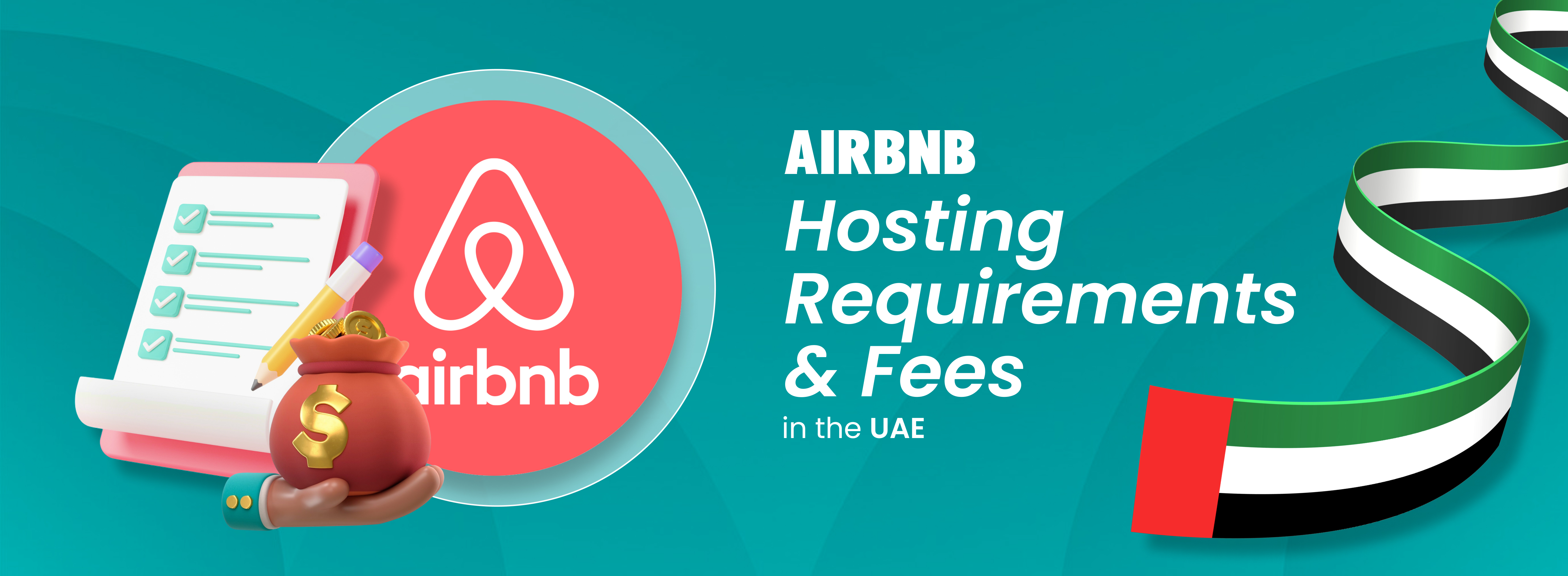The UAE offers a dynamic vacation rental market, but each emirate has its own set of regulations.
Whether you’re planning to list your property in Dubai, Abu Dhabi, or any other emirate, it’s crucial to understand the licensing requirements, safety standards, and fees involved.
Here’s a breakdown of the regulations across key locations in the UAE to help you navigate the process of becoming an Airbnb host.
Table of Contents
ToggleDubai
Holiday Home Permit
In Dubai, hosts must register each unit with the Dubai Department of Economy and Tourism (DET) and obtain a Holiday Home permit.
The required documents include the owner’s passport or Emirates ID, property title deed (or signed tenancy contract), recent DEWA utility bill, and a landlord’s No Objection Certificate (if renting).
Fees & Renewal
The registration costs approximately AED 1,520, with additional small fees for innovation and knowledge.
Permit fees vary depending on the size of the unit, ranging from AED 370 to AED 1,200 for a typical apartment.
The license is valid for a year and must be renewed annually at similar fees. If managing more than eight units, you will need to set up a licensed company and obtain a trade license.
Classification & Safety
Properties in Dubai are classified into Standard and Deluxe categories, based on amenities.
Hosts must meet safety standards, including smoke alarms and fire extinguishers, and secure comprehensive home-contents insurance.
Only whole units can be rented out; subletting individual rooms is not permitted.
Tourism Dirham
A tourism fee is collected from guests: AED 15 per night for a Deluxe bedroom, and AED 10 per night for a Standard bedroom.
This fee applies up to 30 nights per stay, must be listed separately on the invoice, and is remitted monthly to DET.
Penalties
Renting without a permit can lead to fines of up to AED 5,000, guest eviction, delisting, and even imprisonment.
Abu Dhabi
Holiday Home License
In Abu Dhabi, hosts must obtain a Holiday Home license from the Department of Culture and Tourism (DCT).
The registration process requires proof of ownership or tenancy, a passport/ID copy, and a utility bill. The property must meet safety standards, such as smoke detectors and fire extinguishers.
Fees & Renewal
The DET imposes a one-time application fee of AED 1,500, in addition to an AED 10 knowledge fee and AED 10 innovation fee.
Taxes & Fees
Abu Dhabi imposes a 6% tourism fee on the guest’s invoice. Additionally, short-term rental income is subject to a 5% VAT. Hosts are responsible for collecting and remitting these fees to DCT within 15 days after the month ends.
Inspections & Compliance
DCT inspectors may visit properties at any time to verify compliance. Hosts must maintain records of reservations, guest nationalities, and other details for potential audits.
Penalties
Non-compliant properties may face severe fines, up to AED 100,000, and license revocation.
Sharjah
Holiday Home License
Sharjah’s short-term rental market is regulated by the Sharjah Commerce & Tourism Development Authority (SCTDA).
Unlike other emirates, individual owners cannot list units directly in Sharjah; they must register through a licensed company or operator. Tenants need written permission from the landlord.
Registration & Documents
Required documents include proof of ownership (or lease), floor plans, safety certificates, and a landlord’s No Objection Certificate for tenants. Hosts must also obtain liability insurance and ensure the unit meets SCTDA’s minimum safety and quality standards.
Fees & Renewal
The license is issued annually. The permit fee is around AED 1,500 per year for the Kalba region, though it may vary. Hosts should verify the fee with SCTDA.
Tourism Fees
Sharjah’s regulations are still evolving, but hosts should check if a tourism tax (similar to Dubai) applies. As of now, no per-night tourist levy has been specified.
Penalties
Operating without a license can result in substantial fines, listing removal, and possible closure.
Ras Al Khaimah (RAK)
Holiday Home License
Hosts in Ras Al Khaimah must register their properties with the Ras Al Khaimah Tourism Development Authority (RAKTDA) and obtain a Holiday Home permit. This applies to both owners and tenants (with landlord approval).
Fees
Permit fees vary based on the number of bedrooms: AED 300 for 1BR, AED 600 for 2BR, AED 900 for 3BR, and AED 1,200 for 4+BR units. Additionally, a small AED 50 classification fee is charged. An online registration fee of AED 100 is also required.
Tourism & VAT
Hosts must collect a 6% tourism tax and charge a 5% VAT where applicable. RAK also imposes a small per-night “destination fee” similar to Dubai’s Tourism Dirham.
Inspections & Zoning
RAKTDA inspects properties to ensure they meet required standards and checks zoning rules, as only approved areas are allowed for holiday homes. Hosts should verify zoning compliance before applying.
Penalties
Failure to comply with regulations can result in heavy fines, warnings, or even the closure of your listing.
Ajman
Holiday Home License
Ajman Tourism Development launched a Holiday Homes program in 2023. Hosts must apply for a special permit to list properties. The unit must meet safety standards and carry liability insurance.
Registration & Documents
Hosts need to provide proof of ownership or a lease (with landlord NOC), floor plans, and an amenities list. In some cases, a community No Objection Certificate (NOC) is required for managed communities.
Fees
Ajman has not published fixed rates, but fees depend on the unit size and classification (Standard or Deluxe).
Tourism Tax
Hosts are responsible for collecting and remitting any tourism or destination fees set by Ajman Tourism. Stay updated with the latest regulations.
Enforcement
Hosts operating without the proper permit can face significant fines and forced shutdowns.
Other Emirates
While most UAE emirates have established regulations, places like Umm Al Quwain and Fujairah currently have less-developed frameworks for short-term rentals. In these areas, hosts should verify the rules with local authorities, particularly regarding zoning and fire-safety compliance.
Final Thoughts
The UAE offers a thriving market for vacation rentals, but hosts must navigate varying regulations depending on the emirate. Be sure to comply with licensing requirements, safety standards, and tax regulations to avoid hefty fines and penalties. Always check with local authorities to stay updated on any changes in rules and fees before listing your property.
Having trouble managing your vacation rental?
From operations to guest communications, mr.alfred’s vacation rental management software has you covered. Focus on growing your hosting business while mr.alfred takes care of the rest
Other services:
Vacation rental solutions | Vacation rental Channel manager | vacation rental software in UAE | rental arbitrage | OTAs in vacation rentals | Vacation rental management software | best channel manager for vacation rentals | vacation rental software in Dubai | airbnb rental arbitrage | holiday rental management software | short term rental management software




